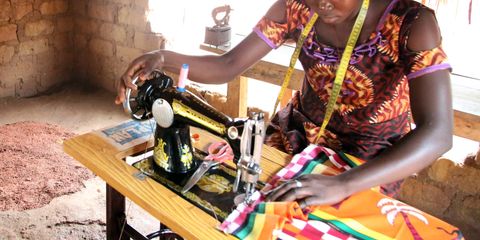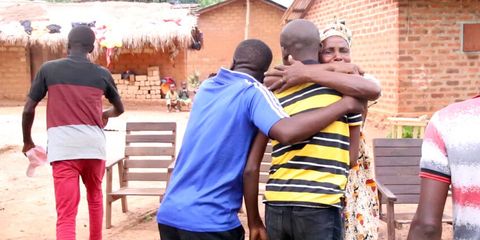Community-based child protection
Community-based child protection. A strategy for protecting conflict-affected girls and boys: A case study from Central African Republic (CAR)
26 April 2017This case study describes the role of community-based child protection groups in protecting children in conflict-affected Central African Republic.
This case study describes the role of community-based child protection groups in protecting children in conflict-affected Central African Republic.
The outbreak of a violent conflict in Central African Republic (CAR) led to mass displacement in December 2013, leaving 2.7 million people in need of humanitarian assistance – half of them children. Since 2014, Plan International has supported the education and protection needs of children affected by armed conflict, including girls and boys associated with armed forces and groups: for example as fighters, cooks, sex slaves, or spies.
Plan International provides a comprehensive integrated child protection, psychosocial and education programme in the provinces of Mambere-Kadei, Ouham and Lobaye. The programme’s aim is to prevent child recruitment and support the reintegration of former child solders, unaccompanied and separated children and other vulnerable children into the community.
In a context where formal services and government presence are limited, Plan International CAR uses a community-based child protection strategy to prevent and respond to violence, abuse, neglect and exploitation of girls and boys. At the same time, our work strengthens government services to respond to the needs of specific groups of at-risk children such as former child solders, unaccompanied minors and survivors of violence and abuse.
Achievements include the gradual capacity and ownership of communities in the identification, prevention and responding to child protection issues such as neglect, violence, family separation and child recruitment into armed groups. While community mobilisation has been successful, inadequate human and financial resources as well as weak structures in the local government posed a key challenge to the sustainability of the humanitarian assistance provided by Plan International in CAR.
Download options
Report
843 kb
Emergencies, Child protection in emergencies


